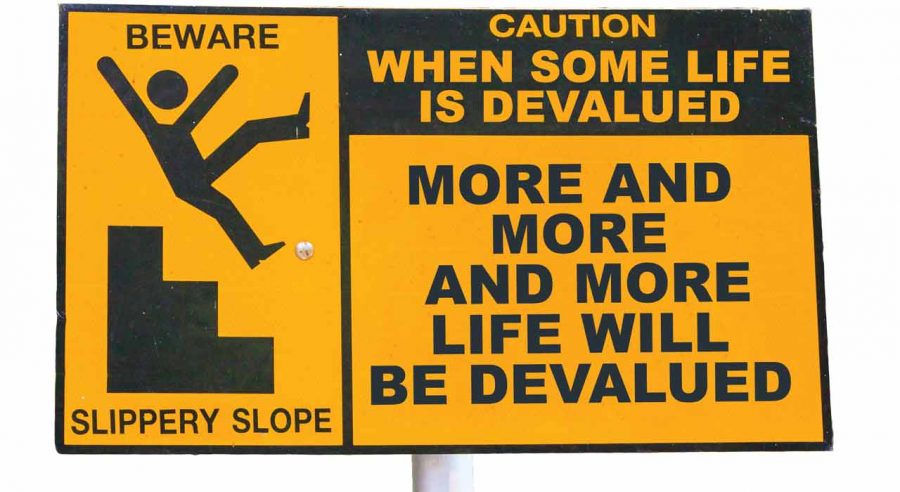Consider the consequences
Euthanasia impacts more than just patient
Throughout life, people will encounter problems which may seem insurmountable and with no clear solution. However, that does not mean that there is no solution at all. One must have the strength and willpower to go on, no matter what. Euthanasia is the antithesis of that resolve; to be euthanized is to give up hope, and it is to reject any chance of survival at all.
“Physician-assisted suicide,” the choice for a terminally ill patient to die painlessly with help from a doctor, is slowly becoming legalized in the U.S. Over the past few decades, the seven states of California, Colorado, Hawaii, Oregon, Vermont, Washington and Minnesota, as well as Washington, D.C., have made euthanasia legal, according to procon.org.
It shouldn’t be forgotten that doctors are people; they aren’t unfeeling machines that lack human emotion and compassion. Remaining indifferent may largely be a part of being a doctor, but that does not mean that a doctor can completely disregard the fact that they had a hand in the death of another human being.
Think about how euthanasia may impact society collectively. Consider this: A man has expressed to his neighbor that over the past few years, his life has begun to fall apart. The company he has worked for has shut down, he has lost his job, his son was killed in a car crash and his wife has left him; among other problems.
The man feels as though he has hit the bottom of his life, and it seems that there is no way out of it. The neighbor, not knowing what to say himself to console the man, but deciding he needs to be put out of his misery, kills the man on the spot. A trial is subsequently held soon after.
If we allow euthanasia, the acceptable killing of another human being —made acceptable because this killing has valid reason, of course— how might one answer in court to a person who has killed their neighbor? This neighbor has given ample reason for this man to kill him, so how can we justify euthanasia if we cannot give people justification in the killing of other people? “It’s because murderers don’t kill people with good reason.” “Good reason” to kill differs from person to person; with war, the death penalty or even self-defense.
The terminally ill, especially those who might be older, such as grandparents or great-grandparents, need also to consider those they are leaving behind. They would be leaving behind their family, their friends and in the case of grandparents, their grandchildren. To die now and not try to hold out is to leave those people behind. Those grandchildren who lost their grandfather or grandmother will never get to know their love and create those cherished memories one often sees form during the relationship between a grandchild and a grandparent. Rather than resign to the seemingly inevitable, consider the pain euthanasia would cause on those the patient would be leaving behind.
After all, what is life if there is no hope? With that in mind, just imagine this: What if the diagnosis was wrong, and the patient was not terminally ill?



